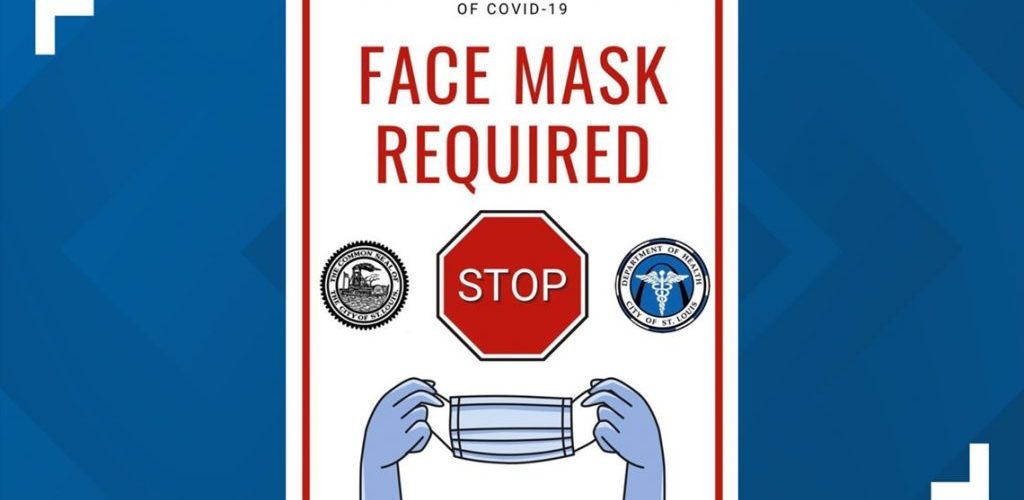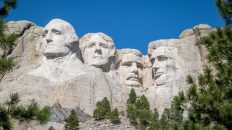Where are the social justice warriors’ outrage, over disabilities’ rights? I personally haven’t seen any rush to my defense as the ADA was trodden by the mask mandates in the name of “safety” from a virus with nearly 100% survival rate. (1) While it’s not clear to me why it is required, or even suggested that healthy people wear facemasks to avoid a virus with such a high survival rate, I’m flummoxed at the notion of mandating something that is not only incredibly deficient in scientific evidence, denoting efficacy (2), but has a superfluity of evidence indicating, adverse physiological, and psychological, health effects. “Is has been hypothesized that facemasks have compromised safety and efficacy profile and should be avoided from use.” (3)
It’s particularly odious that people with disabilities, many whom like myself have spent a lifetime developing coping mechanisms are now being put in further risk and detriment by being forced to wear a facemask. It’s obvious how facemasks pose a challenge to those with asthma, chronic obstructive pulmonary disease (COPD), or other respiratory disabilities (4) but there are many less obvious contraindications of no less significance. As someone who suffers unilateral blindness, bilateral hearing impairment (I learned how to speak by lipreading and still depend heavily upon it), and several other health complications, masks have negatively impacted my life tremendously. I could discuss and cite at length the deleterious impacts of extended continuous facemask usage for all people, but to put those already compromised in further jeopardy seems counterproductive if this is genuinely about health care.
Thanks to Gavin Newsom, mask mandates have become ubiquitous in California. (5) However, the California Department of Public Health has stipulated that those with a medical condition, mental health condition, or disability are granted exemptions. (6):
The following individuals are exempt from wearing a face covering:
- Persons younger than two years old. These very young children must not wear a face covering because of the risk of suffocation.
- Persons with a medical condition, mental health condition, or disability that prevents wearing a face covering. This includes persons with a medical condition for whom wearing a face covering could obstruct breathing or who are unconscious, incapacitated, or otherwise unable to remove a face covering without assistance.
- Persons who are hearing impaired, or communicating with a person who is hearing impaired, where the ability to see the mouth is essential for communication.
- Persons for whom wearing a face covering would create a risk to the person related to their work, as determined by local, state, or federal regulators or workplace safety guidelines.
- Persons who are obtaining a service involving the nose or face for which temporary removal of the face covering is necessary to perform the service.
- Persons who are seated at a restaurant or other establishment that offers food or beverage service, while they are eating or drinking, provided that they are able to maintain a distance of at least six feet away from persons who are not members of the same household or residence.
- Persons who are engaged in outdoor work or recreation such as swimming, walking, hiking, bicycling, or running, when alone or with household members, and when they are able to maintain a distance of at least six feet from others.
- Persons who are incarcerated. Prisons and jails, as part of their mitigation plans, will have specific guidance on the wearing of face coverings or masks for both inmates and staff.
The national disabilities institute also offers a list of mask exemptions (7) :
- Individuals with respiratory disabilities such as asthma, chronic obstructive pulmonary disease (COPD), or cystic fibrosis may not be able to wear a face mask because of difficulty in or impaired breathing. People with respiratory disabilities should consult their own medical professional for advice about using masks. The CDC also states that anyone who has trouble breathing should not wear a face mask.
- People with post-traumatic stress disorder (PTSD), severe anxiety, or claustrophobia (an abnormal fear of being in enclosed or narrow places), may feel afraid or terrified when wearing a face mask. These individuals may not be able to stay calm or function when wearing a face mask.
- Some people with autism are sensitive to touch and texture. Covering the nose and mouth with fabric can cause sensory overload, feelings of panic, and extreme anxiety.
- A person who has cerebral palsy may have difficulty moving the small muscles in the hands, wrists, or fingers. Due to their limited mobility, they may not be able to tie the strings or put the elastic loops of a face mask over the ears. This means that the individual may not be able to put on or remove a face mask without assistance.
- A person who uses mouth control devices such as a sip and puff to operate a wheelchair or assistive technology, or uses their mouth or tongue to use assistive ventilators will be unable to wear a mask.
Despite the ADA requisites for state and local agencies, as well as private businesses to accommodate persons with disabilities so they are able to participate in, or benefit from, the programs offered or goods and services that are provided (8) many businesses and even doctors’ offices have refused to acknowledge people with disabilities, asserting that they are not protected in regards to masks. I have experienced this countless times. Although HIPPA precludes me from having to disclose my medical condition, I have offered to explain myself and requested reasonable accommodations accordingly, to no avail and in some cases I have been harassed, and threatened. (9)
I will spare you the copious litany of complete disregard I have firsthand experienced, to ask why is it that there’s a pervasive insistence on further injuring those already impaired? That doesn’t appear to be the best health care policy, does it? Perhaps one personal recount will offer some insight. I have experienced more chalazion and styes, a known adverse effect of facemasks (10) in the eye out of which I see, in the past year than ever previously. Certainly, chronic styes or chalazions are not preferable, but pose a much greater threat to someone like myself who is visually impaired. Facemasks hinder one’s vision, especially peripherally, which is of even greater significance to someone who’s vision is already challenged. (11) Recently one of the chalazion became so large and painful that my vision was obstructed. While seated in an empty waiting room to seek medical attention, I took reprieve from the burning sensation I was experiencing in my eye and removed my facemask. The office manager called up an entourage of security guards who circled me and began chanting “COMPLY, COMPLY, COMPLY” until finally one of them removed his mask to tell me if I didn’t comply, they would remove me from the building, and that if I were to resist, they would have me arrested. I complied, putting my facemask back on, to immediately experience a return of the burning sensation and fogging of glasses. I left the doctor feeling minimal relief, but unable to shake the chant from my head. Despite it feeling like a dystopian nightmare, the experience was real, and the words left me questioning if this was really about health at all? If we are creating policy to benefit the health of as many as possible, and particularly the most vulnerable, shouldn’t disability rights be shielded?
Sources:
- https://www.cdc.gov/coronavirus/2019-ncov/hcp/planning-scenarios.html?fbclid=IwAR3DvH5umpJxiObUDTKBckeBAfqudrtvzWfQhYiUfHeEhCFeg5UXzalabGg
- https://www.americasfrontlinedoctors.org/legal/masks-the-law
- https://www.ncbi.nlm.nih.gov/pmc/articles/PMC7680614/
- https://www.cdc.gov/coronavirus/2019-ncov/prevent-getting-sick/cloth-face-cover-guidance.html
- https://www.abc10.com/article/news/local/california/former-california-governors-urging-mask-use/103-0f894e78-f011-4939-95f3-5047d42eb186
- https://www.cdph.ca.gov/Programs/CID/DCDC/CDPH%20Document%20Library/COVID-19/Guidance-for-Face-Coverings_06-18-2020.pdf
- https://www.nationaldisabilityinstitute.org/wp-content/uploads/2020/06/ada-and-face-mask-policies.pdf
- https://adata.org/factsheet/health-care-and-ada
- https://www.hhs.gov/hipaa/for-professionals/privacy/index.html
- https://www.vsp.com/eyewear-wellness/ask-eye-doctor/face-masks-and-styes
- https://www.bmj.com/content/371/bmj.m4133









Thank you Courtenay for articulately describing my struggle regarding mask wearing and the ADA. I have a letter written by my physician that explains why I should not wear a mask, due to medical necessity (hearing impairment, asthma and PTSD).
However, when attempting to gain services at the Veterans Administration, I have been walked out of an appointment by their security, refused potentially life saving care at their emergency room, twice received audiology services on their outdoor park bench, and twice gave blood draws in the parking lot.
At my bank, I was forced to fill out my deposit slip on a bench in the rain.
I was also refused entry into the veterans organization where I typically eat breakfast on Friday mornings and have a life membership.
I have also been refused dental care.
All the above infractions happened, because I cannot wear a mask, and people in positions of power are not interested in providing competent care, in accordance with county, state, and federal guidance. It seems they are afraid of running afoul of the governmental regulations. I initiated a congressional investigation over the VA emergency room visit refusal, and was told that they were following the guidelines of the Veterans Administration in Washington, DC, and therefore they were not in violation of the Americans with Disabilities Act, because it is only advisory.
As a social worker, I like a challenge. I would like to take steps to make sure this and other civil liberty infringements can never happen again. I am so grateful that I am in private practice, where I got to treat my clients and myself with dignity and respect. Thank you for your article. Glad to know I am not alone.